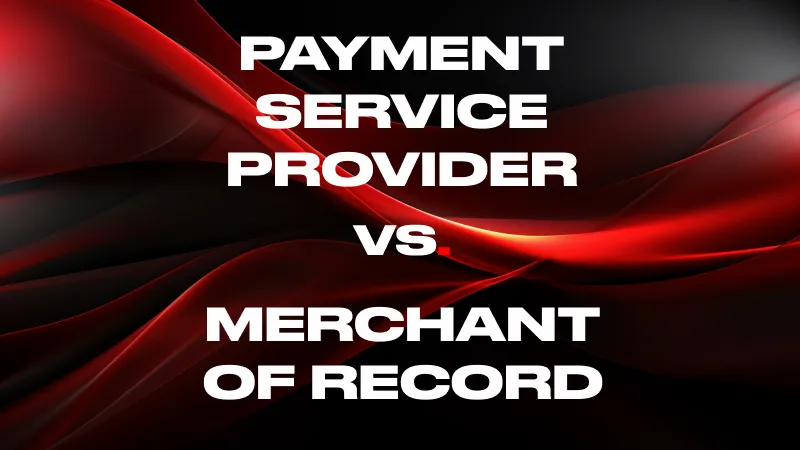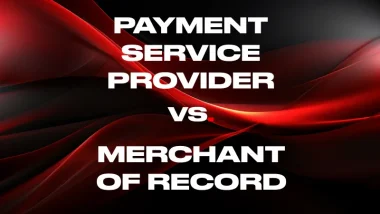What is the difference between a merchant of record and a payment service provider?
A Merchant of Record (MoR) and a Payment Service Provider (PSP) are two distinct entities involved in facilitating online transactions, particularly in e-commerce and digital goods. They serve different functions within the payment process.
Here's the difference between the two:
Merchant of Record (MoR):
- Legal Responsibility: The MoR is the entity legally responsible for selling goods or services in a transaction. It assumes ownership of the products or services being sold and takes on the associated legal, financial, and compliance responsibilities.
- Taxation and Compliance: As the legal seller, the MoR handles tax calculations, collection, and remittance to the appropriate authorities. It's also responsible for compliance with various regulations, such as consumer protection laws.
- Risk Management: The MoR assumes the risk of chargebacks, fraud, and other payment-related issues. It handles disputes and refund requests directly with customers.
- Global Expansion: MoRs are often used by companies expanding into new markets where they might not have a physical presence. The MoR can manage local regulations, currencies, and payment methods on behalf of the selling company.
Payment Service Provider (PSP):
- Payment Processing: A PSP facilitates the technical aspects of online payments. It provides the technology and infrastructure needed to process transactions, including payment gateways, APIs, and secure payment processing systems.
- Payment Methods: PSPs enable digital goods merchants and videogame publishers to accept various payment methods, such as credit and debit cards, digital wallets, bank transfers, and more.
- Security: PSPs prioritize security and compliance by offering encryption, fraud prevention, and other safeguards to protect sensitive payment information.
- Integration: PSPs offer integration options that allow merchants to embed payment functionalities into their websites or applications.
- Transaction Handling: While the MoR is legally responsible for the transaction, the PSP handles the technical aspects of transmitting payment data between the customer, merchant, and payment networks.
In summary, the Merchant of Record is primarily concerned with a transaction's legal and financial aspects, assuming responsibility for compliance, taxes, and customer disputes. On the other hand, the Payment Service Provider focuses on the technical infrastructure and security required to process payments, offering a range of payment options and ensuring smooth transactions.
Some companies, including 1D3 Digitech, combine both roles to provide comprehensive payment solutions that encompass both legal and technical aspects.
So, if you need smooth payment processing combined with a hassle-free merchant-of-record service, do not hesitate to contact the 1D3 sales team!








